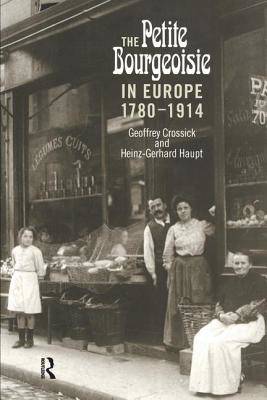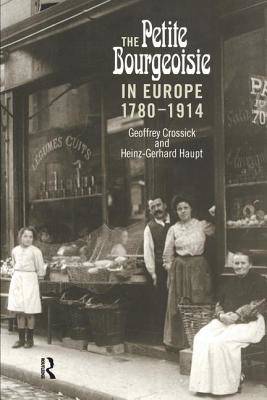
- Retrait gratuit dans votre magasin Club
- 7.000.000 titres dans notre catalogue
- Payer en toute sécurité
- Toujours un magasin près de chez vous
- Retrait gratuit dans votre magasin Club
- 7.000.0000 titres dans notre catalogue
- Payer en toute sécurité
- Toujours un magasin près de chez vous
The Petite Bourgeoisie in Europe 1780-1914
Enterprise, Family and Independence
Geoffrey Crossick, Heinz-Gerhard HauptDescription
Crossick and Haupt provide a major overview of the social, economic, cultural and political development of the petite bourgeoisie in modern Europe, a group until now largely neglected by European social historians.
Through comparative analysis the authors examine issues such as the centrality of small enterprise to industrial change, the importance of family and locality to the petit-bourgeois world, the search for stability and status and the associated political move to the right.
Crossick and Haupt have written an invaluable and authoritative assessment of the emergence of a distinctive petit-bourgeois cultural and political identity. It will be of interest to both undergraduate students and academic historians.
Spécifications
Parties prenantes
- Auteur(s) :
- Editeur:
Contenu
- Nombre de pages :
- 308
- Langue:
- Anglais
Caractéristiques
- EAN:
- 9781138154339
- Date de parution :
- 14-12-16
- Format:
- Livre relié
- Format numérique:
- Genaaid
- Dimensions :
- 156 mm x 233 mm
- Poids :
- 452 g

Les avis
Nous publions uniquement les avis qui respectent les conditions requises. Consultez nos conditions pour les avis.






